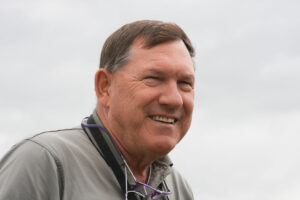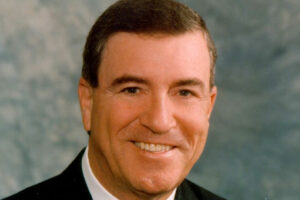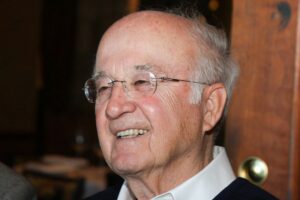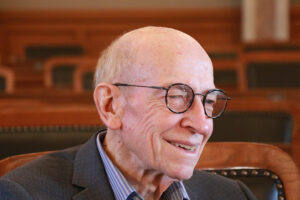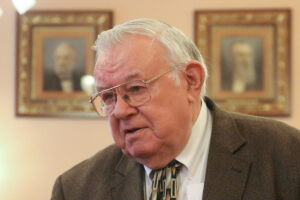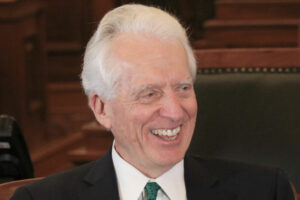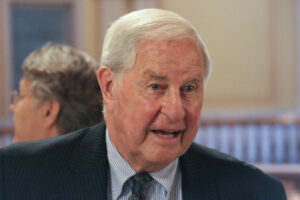Interview of H. Edward (Ed) Flentje, June 14, 2019
Interviewed by Rex Buchanan
In this 2019 oral history interview of Ed Flentje, he recalls the intricate work of developing a water planning process and applying good governance principles to a highly contentious issue that involved a variety of entities both inside and outside state government in the 1970s. The innovations in water regulation that grew out of the agenda of Governor Bennett, for whom Flentje served as Planing Director, were carried out and implemented by succeeding Governors, Carlin and Hayden. Flentje's description of water policy rising to prominence in the Bennett administration demonstrates how governors benefit from listening to a variety Show Moreof voices when developing policy agendas. Show Less


